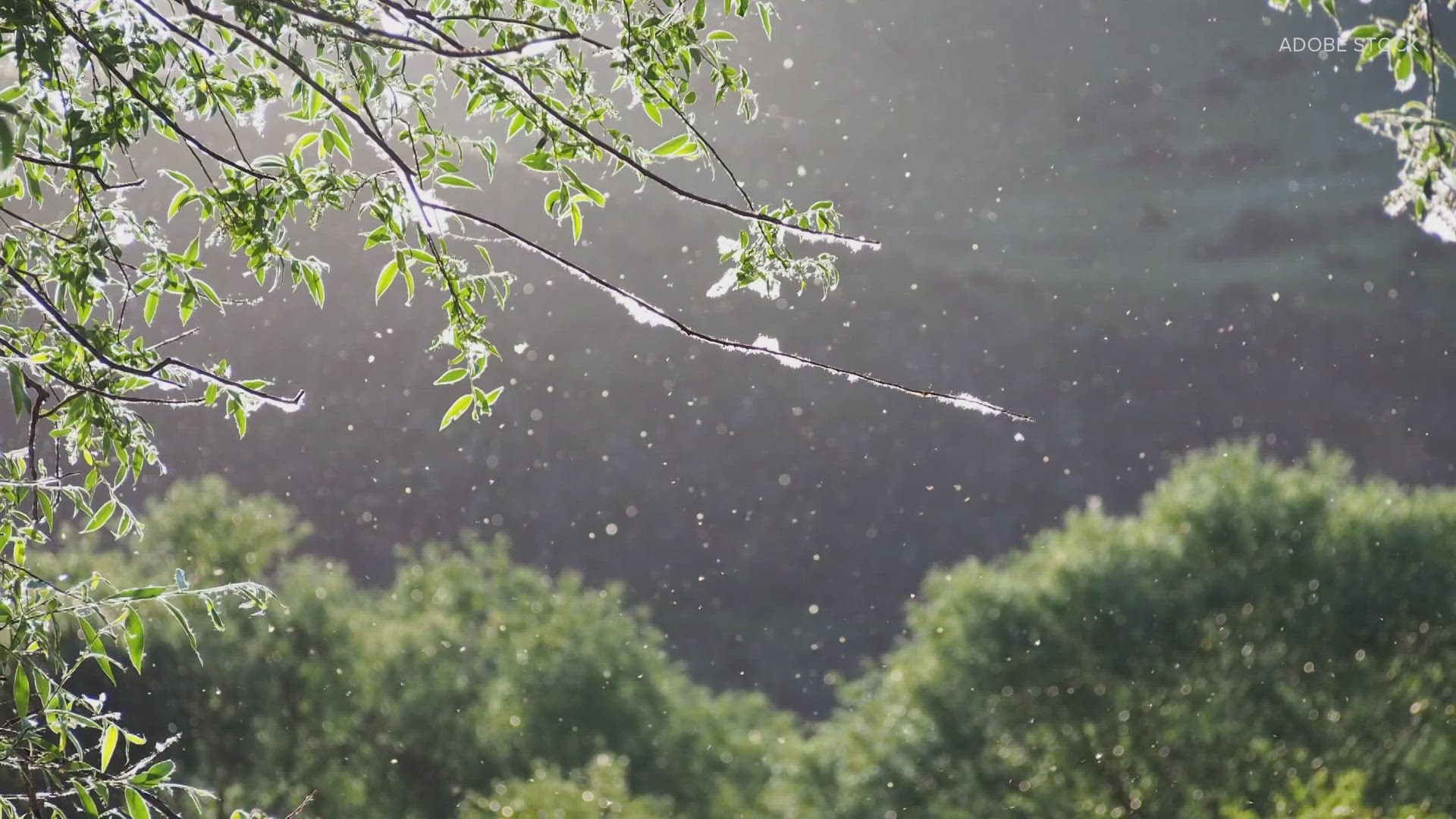SEATTLE — Pollen allergy season is in full force this spring and it is not expected to get better as we enter the summer months.
In the northwest, tree pollen peaks in the spring months of March through April. But come June, grass pollen will dominate the air.
On April 11, for example, the dominant pollen circulating in the air in the Seattle area is from the Birch tree, with the pollen count on that Thursday marked as "high." This weekend's pollen count is also expected to be high, according to pollen.com. Saturday is expected to be at 10.7, out of 12, and Sunday is expected to be 10.1. Pollen will remain high until Tuesday, where it will drop down to a medium ranking.
Doctors said there is still time to preemptively deal with allergy symptoms ahead of the continuously high pollen counts ahead.
"When the season hits you a little bit sooner, it's hard right, you're not really on top of it," said Dr. Stacey Ma, an allergist and a clinical assistant professor at UW Medicine's Division of Allergy and Infectious Diseases.
Ma said getting treatment weeks, even months in advance, can help.
"I think a lot of what we do is telling people to start ahead of the season, start your medications two to four weeks before the season starts," Ma said.
Symptoms can vary but include itchy and watery eyes, a stuffy and runny nose, and sneezing.
Treatments include oral antihistamines and nasal decongestants and if those don't work, Ma said immunotherapy with allergy shots may be an option if it is approved by the patient's physician.
As for the difference between cold and allergy symptoms, which can be very similar, Ma said there is something to look out for.
"I would really go off of the whole constellation of symptoms; if somebody is having a fever, that would not be expected for allergy," Ma said.
Ma has also noticed her patients coming to her with allergy symptoms earlier than usual.
"I think I'm just noticing how much more of my patients are coming in saying they have bothersome symptoms sooner that they just couldn't get a hold of," Ma said.
Ma pointed to changing climate conditions as possible contributing factors.
"Higher temperatures and higher C02 levels -- those can stimulate photosynthesis, plant growth, pollen production, so as we're really seeing temperatures rising and seeing in the environment more byproducts of things, I think those two seem to come along quite clearly," Ma said.
Other ways to lessen allergy symptoms are immediately changing clothes after you've been outside a while, showering before bed to remove any pollen from the body and hair, and saline nasal rinses, which can help.

